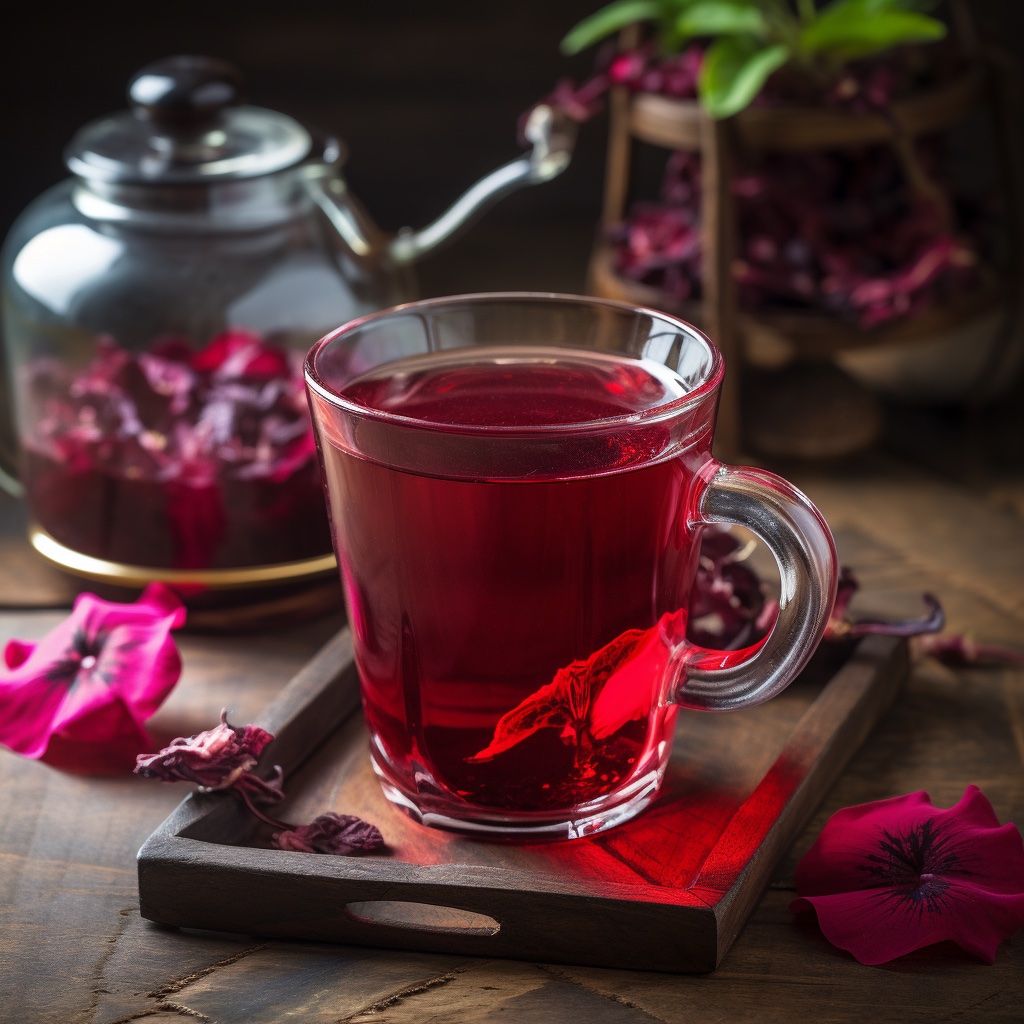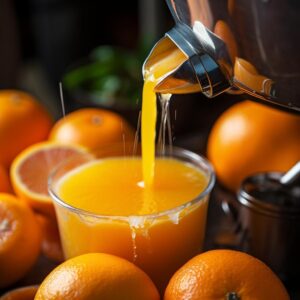
High blood pressure, also known as hypertension, is a prevalent health condition that can have serious implications for your overall well-being. If left uncontrolled, it can increase the risk of heart disease, stroke, and other health complications. While medication and lifestyle changes play a crucial role in managing high blood pressure, incorporating certain drinks into your diet may help further regulate your blood pressure levels. In this article, we will explore different drinks that have been associated with lowering high blood pressure and discuss their potential benefits.
Understanding High Blood Pressure
Before delving into the specific drinks, it’s essential to understand what high blood pressure is and its impact on your health. High blood pressure occurs when the force of blood against the walls of your arteries is consistently too high, putting increased strain on your cardiovascular system. Factors such as lifestyle choices, genetics, age, and underlying medical conditions can contribute to the development of high blood pressure. Managing and lowering blood pressure is crucial for maintaining optimal health.
Importance of Diet in Blood Pressure Management
Your diet plays a critical role in managing high blood pressure. Consuming a healthy, balanced diet that is rich in fruits, vegetables, whole grains, lean proteins, and low-fat dairy products can help improve your cardiovascular health. Specific nutrients, such as potassium, magnesium, and fiber, have been shown to have blood pressure-lowering effects. By incorporating drinks that contain these beneficial nutrients, you can further support your blood pressure management efforts.
Popular Drinks for Lowering Blood Pressure
Green Tea
Green tea is a popular beverage known for its numerous health benefits, including potential effects on blood pressure regulation. Rich in antioxidants called catechins, green tea has been found to promote vascular health and improve blood flow. Some studies suggest that regularly consuming green tea may help lower both systolic and diastolic blood pressure.
Hibiscus Tea
Hibiscus tea, made from the dried petals of the hibiscus flower, has been traditionally used in various cultures for its medicinal properties. Research indicates that hibiscus tea may have antihypertensive properties, helping to lower blood pressure levels. Some studies have shown that regularly drinking hibiscus tea can lead to significant reductions in both systolic and diastolic blood pressure.
Beet Juice
Beets are rich in nitrates, which are converted into nitric oxide in the body. Nitric oxide helps relax and widen blood vessels, consequently reducing blood pressure levels. Beet juice has been found to have a positive impact on blood pressure, especially in individuals with hypertension. Regular consumption of beet juice has been associated with lower systolic and diastolic blood pressure measurements.
Cranberry Juice
Cranberry juice is widely known for its potential benefits in urinary tract health, but it may also have favorable effects on blood pressure. Cranberries contain phytochemicals called proanthocyanidins, which have been shown to improve blood vessel function and reduce blood pressure levels. Including cranberry juice in your diet in moderation may contribute to better blood pressure management.
Other Beneficial Drinks for High Blood Pressure
Pomegranate Juice
Pomegranate juice is packed with antioxidants, particularly polyphenols, that have been linked to various health benefits. These antioxidants can help reduce blood pressure by improving arterial function, reducing inflammation, and enhancing overall cardiovascular health. Studies suggest that regular consumption of pomegranate juice may lead to significant reductions in blood pressure.
Lemon Water
Lemon water, made by squeezing fresh lemon juice into water, is a refreshing and hydrating drink that may have blood pressure-lowering effects. Lemons are rich in vitamin C and other beneficial compounds that can promote healthy blood vessels and support optimal blood pressure levels. Adding a squeeze of lemon to your water throughout the day can be a simple yet effective way to incorporate this drink into your routine.
Watermelon Juice
Watermelon juice is not only a delicious and hydrating beverage but may also have implications for blood pressure management. Watermelons are a natural source of an amino acid called citrulline, which helps produce nitric oxide in the body. Nitric oxide relaxes blood vessels and can contribute to lowering blood pressure. Including fresh watermelon juice in your diet may help support healthy blood pressure levels.
Herbal Infusions
Herbal infusions, such as chamomile, lavender, and passionflower tea, have been traditionally used for their calming and relaxing properties. These herbal drinks can help reduce stress levels, promote better sleep, and indirectly contribute to blood pressure management. By incorporating these infusions into your daily routine, you can create an environment of relaxation and support holistic well-being.
Scientific Evidence and Studies
Numerous scientific studies have investigated the effects of these drinks on blood pressure levels. While the findings are promising, it’s important to note that individual responses may vary. Factors such as overall diet, lifestyle choices, and the presence of underlying medical conditions can influence the impact of these drinks on blood pressure. It’s recommended to work with healthcare professionals and incorporate these drinks as part of an overall blood pressure management plan.
Incorporating Blood Pressure-Lowering Drinks into a Healthy Diet
When incorporating these drinks into your diet, it’s crucial to do so in moderation and as part of a well-balanced eating plan. Pay attention to serving sizes and avoid excessive consumption, as some drinks may contain natural sugars or other components that can affect overall health. It’s best to consult with a healthcare professional or a registered dietitian to determine the optimal amount and frequency of these drinks based on your individual needs.
Potential Risks and Considerations
While these drinks have been associated with blood pressure-lowering effects, it’s important to be mindful of any potential risks or considerations. Some individuals may experience allergies or sensitivities to certain ingredients present in these drinks. Additionally, if you are taking medication for high blood pressure or any other medical condition, it’s important to discuss with your healthcare provider to ensure there are no interactions or adverse effects.
Lifestyle Factors for Blood Pressure Management
In addition to incorporating these beneficial drinks, it’s crucial to address other lifestyle factors that contribute to blood pressure management. Regular physical activity, stress reduction techniques, and maintaining a healthy weight are essential components of a comprehensive approach to blood pressure control. By adopting a holistic lifestyle, including these drinks, you can support your overall cardiovascular health and improve blood pressure management.
Conclusion
Incorporating certain drinks into your daily routine may provide an additional boost to your blood pressure management efforts. Green tea, hibiscus tea, beet juice, cranberry juice, pomegranate juice, lemon water, watermelon juice, and herbal infusions have all shown potential blood pressure-lowering effects. However, it’s important to remember that these drinks should complement a balanced diet and lifestyle changes, rather than replace them. Consult with healthcare professionals for personalized advice and develop a comprehensive plan to effectively manage your high blood pressure.
FAQs
Can I drink these blood pressure-lowering drinks instead of taking medication?
It’s important to consult with your healthcare provider before making any changes to your medication regimen. While these drinks may have blood pressure-lowering effects, they should not replace prescribed medication without proper medical guidance.
How much of these drinks should I consume daily?The optimal amount of these drinks varies depending on factors such as individual health conditions, medication usage, and overall diet. It’s best to consult with a healthcare professional or registered dietitian to determine the appropriate serving sizes for your specific needs.
Are there any potential side effects associated with these drinks?
While these drinks are generally safe to consume, some individuals may experience allergies, sensitivities, or interactions with certain medications. It’s best to consult with a healthcare professional to ensure there are no adverse effects or risks.
Can I mix these drinks together for a more potent effect?While mixing drinks together may seem like a tempting idea, it’s essential to be cautious as some combinations may not work well together or may have unpredictable effects. It’s best to enjoy these drinks individually and in moderation.
How long does it take to see the effects of these drinks on blood pressure?The timeframe for seeing effects can vary among individuals. It’s important to remember that blood pressure management is a long-term commitment. Consistency and adherence to a healthy lifestyle, including these drinks, are key factors in achieving lasting results.

